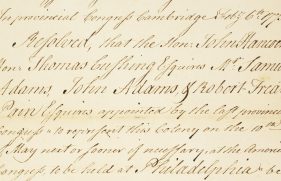This Supreme Court decision forbade states from enacting any laws or legislation that would interfere with Congress’s right to regulate commerce among the separate states. Chief Justice John Marshall’s Court ruled that Congress has the power to “regulate commerce” and that Federal law takes precedence over state laws.
Robert Fulton’s 1807 invention of the steamboat was highly significant; but its application would have been severely limited had the Supreme Court not ruled against the monopoly in interstate steamboat operation in Gibbons v. Ogden.
The State of New York passed a law giving Robert Fulton and Robert Livingston a monopoly on steamboat traffic on the Hudson Bay, “navigating all boats that might be propelled by steam, on all waters within the territory, or jurisdiction of the State, for the term of twenty years.” Fulton and Livingston issued permits and seized boats that operated without their endorsement.
Aaron Ogden had a license from the State of New York to navigate between New York City and the New Jersey Shore. Ogden found himself competing with Thomas Gibbons, who had been given permission to use the waterways by the Federal Government. After the State of New York denied Gibbons access to the Hudson Bay, he sued Ogden.
The case went to the Supreme Court, and Chief Justice Marshall’s opinion carried out the clear original intent of the Constitution to have Congress, not the states, regulate interstate commerce. Marshall’s decision sustained the nationalist definition of Federal power and ruled that Congress could constitutionally regulate many activities that affected interstate commerce.
In the wake of this decision, the Federal Government, empowered by the Constitution’s commerce clause, increasingly exercised its authority by legislation and judicial decision over the whole range of the nation’s economic life.




